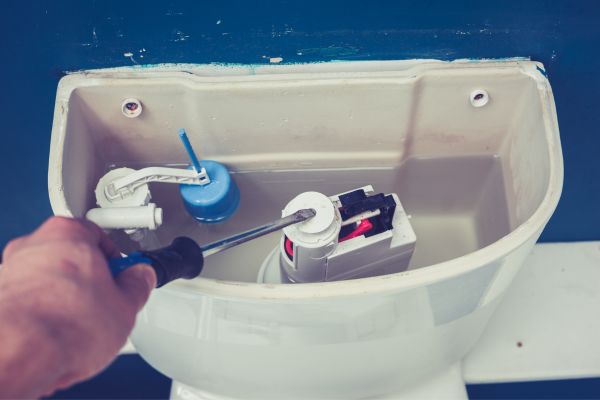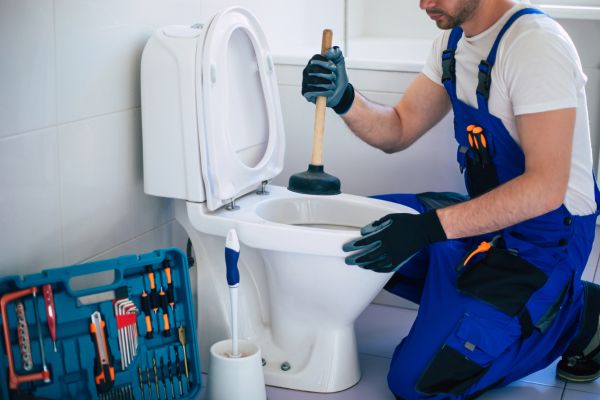What Are Plumbing Jobs?
Plumbing jobs are crucial for maintaining essential water systems in homes, businesses, and public buildings. If you’ve ever had a leaky faucet or a clogged drain, chances are you’ve already appreciated the expertise of a plumber. But plumbing jobs go far beyond fixing leaks; they encompass the installation and maintenance of various systems involving water, gas, and heating.
This article dives deep into the world of plumbing jobs, covering everything from the skills you need to the opportunities waiting for you in this hands-on career. So, if you’re considering a career change or you’re curious about the trade, stick around—we’ve got you covered!
What Does a Plumber Do?
At its core, plumbing revolves around water systems, but the job covers much more than just unclogging toilets. Plumbers are responsible for:
- Installing and repairing pipes that supply water and gas
- Troubleshooting and fixing drainage systems
- Installing fixtures like bathtubs, sinks, and toilets
- Ensuring that building codes and safety standards are met
- Diagnosing plumbing issues and creating repair plans
Their work keeps our homes and businesses running smoothly. Without plumbers, we’d face issues like contaminated water, flooding, and broken heating systems.
Types of Plumbing Jobs
Not all plumbing jobs are the same! The trade is diverse, offering several career paths depending on your interest and expertise. Here’s a breakdown:
1. Residential Plumbers
These plumbers focus on home plumbing systems, dealing with everything from leaking faucets to installing entire plumbing systems in new homes.
2. Commercial Plumbers
If residential work doesn’t seem like enough of a challenge, consider commercial plumbing. Commercial plumbers work in larger buildings like shopping malls, office complexes, and factories, where the systems are often more complex.
3. Service and Repair Plumbers
These plumbers respond to emergency calls, fixing things like busted pipes and malfunctioning hot water systems. It’s a job that can come with unpredictable hours, but also with the satisfaction of solving urgent problems.
4. Pipefitters and Steamfitters
These specialists focus on installing and maintaining high-pressure pipes that transport chemicals, gas, and steam. This type of plumbing job is often found in industrial settings.
5. Water Supply Plumbers
A specialized plumbing job focusing solely on the installation and repair of water supply systems—think irrigation systems for agriculture, or piping in large commercial spaces.
6. Sanitary Plumbers
Sanitary plumbers deal with bathroom installations and maintenance. These professionals handle tasks like fitting toilets, installing showers, and unclogging drains.
How to Become a Plumber
Wondering what it takes to land plumbing jobs? Here’s a breakdown of the typical steps:
1. Get a High School Diploma or GED
This is your first step. While it’s not always required, a high school diploma or GED will make you eligible for apprenticeship programs.
2. Join an Apprenticeship Program
Apprenticeships provide on-the-job training while allowing you to earn money. These programs usually last between four to five years and combine classroom instruction with hands-on experience.
3. Get Licensed
Most states require plumbers to hold a license. This usually involves passing an exam that tests your knowledge of plumbing codes and practices. Be sure to check the specific requirements in your state.
4. Consider Specialization
As we discussed earlier, there are different types of plumbing jobs. Some plumbers choose to specialize in one area, like gas fitting or pipefitting. Specialization can make you more competitive in the job market and often leads to higher pay.
5. Stay Up-to-Date
The plumbing industry evolves, especially as new technology comes into play. Continuing education can help you stay on top of the latest trends and techniques.
Skills Needed for Plumbing Jobs
To succeed in plumbing jobs, you’ll need more than just the ability to turn a wrench. Here are some key skills:
- Problem-Solving Skills: Every day presents new challenges, whether it’s figuring out why a pipe is leaking or how to install a new system.
- Physical Stamina: Plumbing is physically demanding. You’ll spend much of your day lifting heavy equipment, squatting, and crawling into tight spaces.
- Attention to Detail: Plumbing involves precision. One wrong connection can lead to big problems down the road.
- Communication Skills: You’ll need to explain issues and solutions to clients who may not be familiar with the technical aspects of plumbing.
- Time Management: Plumbers often juggle multiple jobs at once, so knowing how to manage your time is essential.
Pros and Cons of Plumbing Jobs
Before diving headfirst into a plumbing career, it’s wise to weigh the pros and cons.
Pros:
- Job Security: Plumbing jobs are always in demand, meaning there’s a constant need for skilled workers.
- Good Pay: Experienced plumbers often earn competitive wages, especially in specialized fields.
- No College Debt: Unlike many careers, plumbing doesn’t require a college degree, which means no hefty student loans.
- Hands-On Work: If you enjoy practical, hands-on tasks, plumbing is a highly rewarding career.
Cons:
- Physical Demands: Plumbing is physically tough. Be prepared for sore muscles and long days.
- Unpredictable Hours: Especially in emergency plumbing jobs, you may have to work nights, weekends, or holidays.
- Exposure to Hazards: Plumbers often work in less-than-ideal conditions, sometimes facing exposure to hazardous materials like raw sewage or chemicals.
FAQs About Plumbing Jobs
1. What qualifications do I need for plumbing jobs?
You’ll need a high school diploma or equivalent, complete an apprenticeship, and get licensed in most states.
2. How much do plumbers earn?
Plumbers’ salaries vary depending on location and experience. On average, plumbers in the U.S. earn between $45,000 to $60,000 per year, with specialized fields like pipefitting offering even higher wages.
3. Are plumbing jobs in demand?
Yes! Plumbing jobs are consistently in demand, especially with aging infrastructure requiring updates and maintenance.
4. Is plumbing a dirty job?
Plumbing can be messy at times, especially when dealing with leaks, clogged pipes, or sewage issues. However, many plumbers take pride in solving these challenges and keeping things running smoothly.
5. Can women pursue plumbing jobs?
Absolutely! Plumbing is a field open to everyone, and more women are entering the trade every year.
Conclusion: Is Plumbing the Right Career for You?
If you enjoy working with your hands, solving problems, and don’t mind getting a little dirty, plumbing jobs can provide a rewarding career. With strong job security, a decent salary, and opportunities for growth, this is a profession that offers both stability and satisfaction. Whether you’re just starting out or looking to switch careers, plumbing is an industry where you can make a real difference in people’s lives—every single day.



